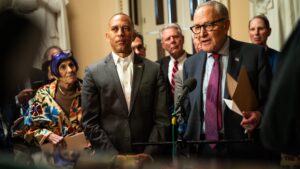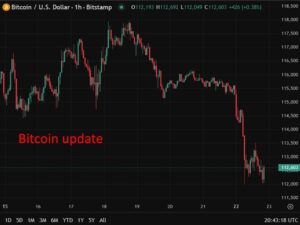Markets
Yesterday’s risk correction on Wall Street didn’t spill to European dealings with key indices adding up to 0.5%. January EMU retail sales barely grew (0.1% M/M vs 0.2% consensus), but obviously didn’t impact trading ahead of tomorrow’s ECB gathering. Employment indices in US manufacturing ISM last Friday (45.9 from 47.1) and non-manufacturing ISM yesterday (48 from 50.5) suggested the worst for today’s ADP employment report and Friday’s payrolls. Downside risks in any case didn’t materialize today with net job growth clocking at 140k (vs 150k consensus) from a marginally upwardly revised 111k in January. Details showed mainly medium (+69k) and large companies (+61k) responsible for job gains. Sector and regional-wise, job creation was broad-based, led by leisure and hospitality, construction and trade & transportation. Wage growth accelerated for the first time in over a year for job changers (7.6% Y/Y from 7.2% Y/Y) while slowing further for job stayers (5.1% Y/Y from 5.3% Y/Y). Remarks of Fed Chair Powell’s semi-annual testimony before US Congress sounded very familiar. Rate cuts are coming “at some point this year” but “the committee does not expect that it will be appropriate to reduce the target range until it has gained greater confidence that inflation is moving sustainably toward 2%”. Most Fed members recently closed ranks around December forecasts, suggesting a cumulative 75 bps of rate cuts is still the valid scenario with a first move coming as soon as June. Ahead of rate cuts, the Fed is likely to sort out how the quantitative tightening process will continue in coming months. They want to avoid draining too much liquidity from the system like they did back in 2018. Markets didn’t respond to the outcome. US Treasuries outperform German Bunds in a daily basis, pushing EUR/USD for a test of the upper bound of the broad 1.07-1.09 range in place since mid-January. Higher oil prices can’t help the greenback while the euro doesn’t suffer from French comments that last year’s budget deficit would even be bigger than the upwardly revised 4.9% of GDP.
UK Chancellor Hunt announced that the main national insurance payroll tax will be cut from 10% to 8% as he delivered the annual budget. The ONR also upgraded growth forecast for this year and next from 0.7% to 0.8% and from 1.4% to 1.9% respectively. The UK debt management office separately announced that it will issue £265.3bn of gilts this fiscal year (up from £237bn) with long term bonds making up less of the issuance compared to last year (18.5% vs 21.1%). UK Gilts slightly outperform today, with yields dropping up to 4 bps.
News & Views
The Egyptian pound slumped against the US dollar today. USD/EGP shot up from 30.85 to 50. After the central bank at an unscheduled meeting today jacked up interest rates by a whopping 600 bps to 27.25%, investors felt something else was coming too. Indeed, authorities later announced the long-awaited 35%+ devaluation of EGP. Doing so brought the pound to levels for which it is changing hands on the black market. Egypt is suffering from a severe currency crisis and rampant inflation (30%). It has struck a $3bn deal with the IMF but little of that has been disbursed yet as the Washington-based lender wanted Egypt to take additional crisis measures first. These include tighter monetary policy and a more flexible official exchange rate. Today’s announcement paves the way not only for the IMF loan to be disbursed but also to be increased to more than $10bn. Last month, Cairo also struck a mega $35bn deal with the UAE to develop parts of Egypt’s coast and elsewhere and authorities claimed it as the biggest foreign investment ever. In a sign of investors gaining some confidence back, Egyptian dollar bonds since the UAE deal rallied sharply, pushing double digit yields several percentage points lower.
The European Union is closing in on imposing additional tariffs on imported Chinese electric vehicles. Launching an inquiry into illegal financial support for the industry in October last year, the bloc this week said it has now found “sufficient evidence” of Chinese direct transfers of funds to producers, tax breaks or public provision of goods and services below market prices. It noted a “substantial increase” of Chinese imports in a relatively short period of time, adding that the damage for local EV producers may have started to materialize even before the end of the investigation (which may last no longer than 13 months). For this reason, the EU is taking the appropriate steps to make it possible to collect import duties retroactively should it decide to impose them. Provisional tariffs could be introduced in July with definitive ones in place by November.









